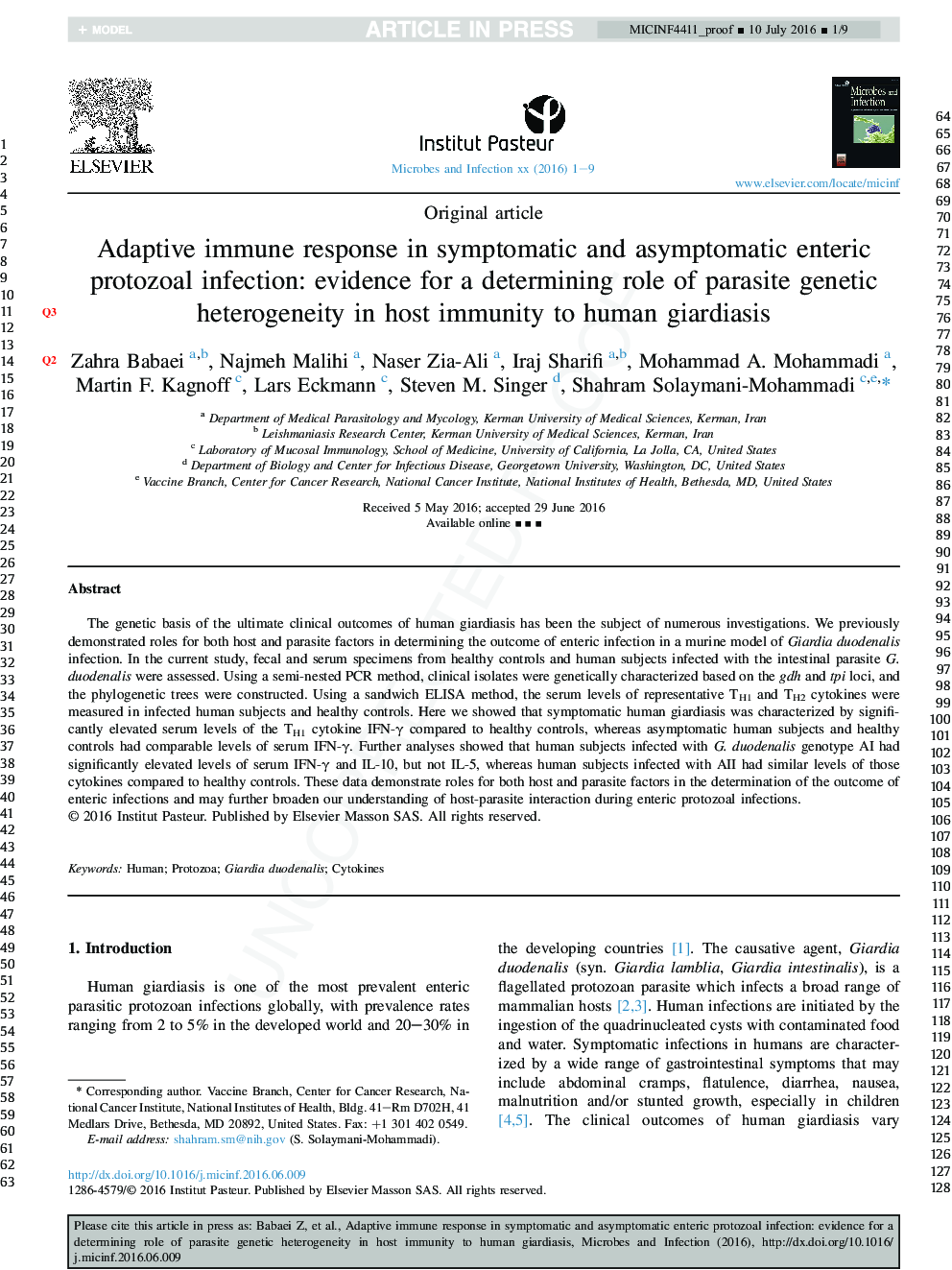| Article ID | Journal | Published Year | Pages | File Type |
|---|---|---|---|---|
| 5673738 | Microbes and Infection | 2016 | 9 Pages |
Abstract
The genetic basis of the ultimate clinical outcomes of human giardiasis has been the subject of numerous investigations. We previously demonstrated roles for both host and parasite factors in determining the outcome of enteric infection in a murine model of Giardia duodenalis infection. In the current study, fecal and serum specimens from healthy controls and human subjects infected with the intestinal parasite G. duodenalis were assessed. Using a semi-nested PCR method, clinical isolates were genetically characterized based on the gdh and tpi loci, and the phylogenetic trees were constructed. Using a sandwich ELISA method, the serum levels of representative TH1 and TH2 cytokines were measured in infected human subjects and healthy controls. Here we showed that symptomatic human giardiasis was characterized by significantly elevated serum levels of the TH1 cytokine IFN-γ compared to healthy controls, whereas asymptomatic human subjects and healthy controls had comparable levels of serum IFN-γ. Further analyses showed that human subjects infected with G. duodenalis genotype AI had significantly elevated levels of serum IFN-γ and IL-10, but not IL-5, whereas human subjects infected with AII had similar levels of those cytokines compared to healthy controls. These data demonstrate roles for both host and parasite factors in the determination of the outcome of enteric infections and may further broaden our understanding of host-parasite interaction during enteric protozoal infections.
Related Topics
Life Sciences
Immunology and Microbiology
Immunology
Authors
Zahra Babaei, Najmeh Malihi, Naser Zia-Ali, Iraj Sharifi, Mohammad A. Mohammadi, Martin F. Kagnoff, Lars Eckmann, Steven M. Singer, Shahram Solaymani-Mohammadi,
